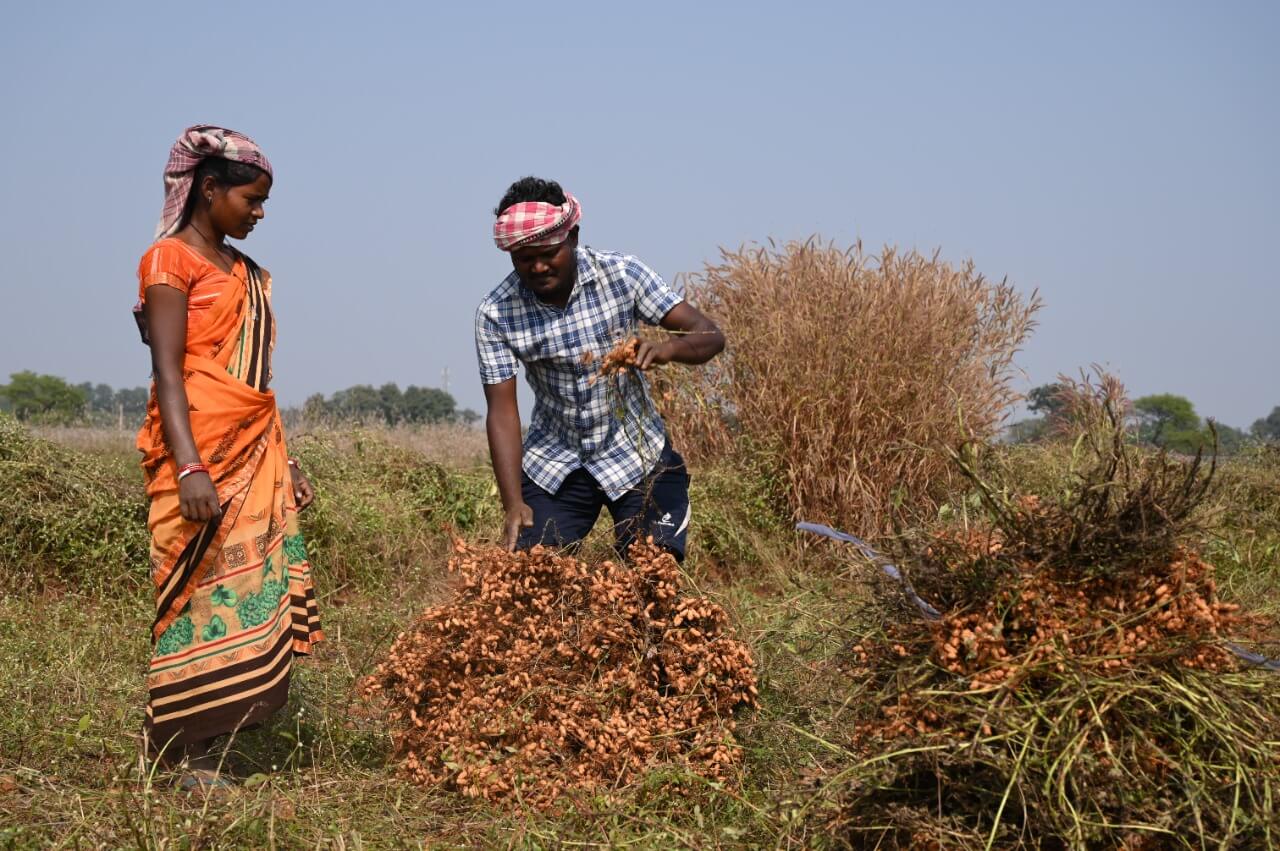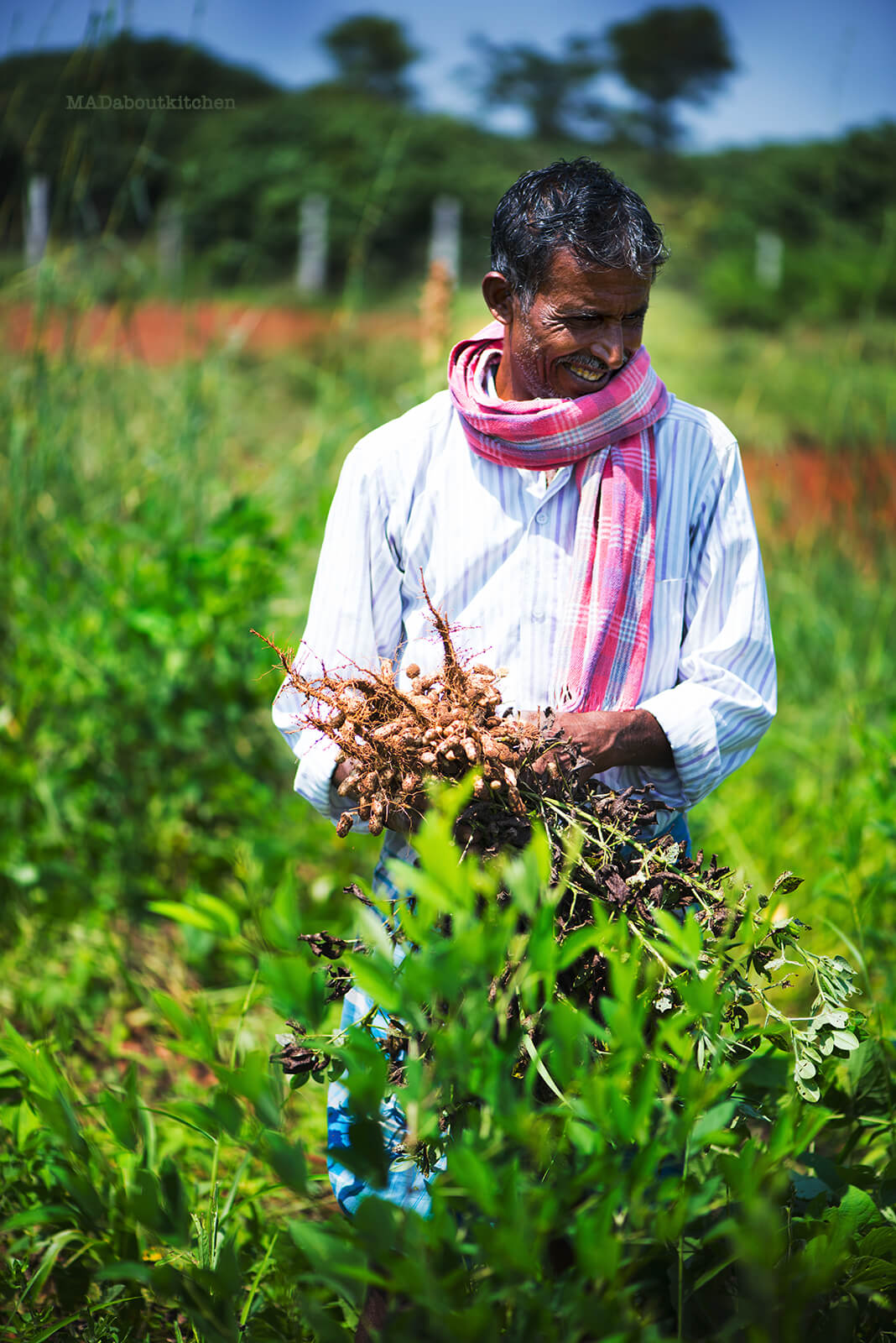

An ounce of information

Article by Pnut King
Published on 05/10/2023 in Peanut Farming
The world as we know it is changing rapidly. With global temperatures rising, and the world’s limited resources likely to be stretched by surging population growth, there are real challenges faced by producers, manufacturers, and traders of food products.Industry stakeholders need to fulfil the demand created by this growing consumer base, and they need to do so in the face of environmental changes which are affecting crop yields. Sustainability is a hot topic, and it’s important that farmers and industry bodies respond effectively to the need to increase resource efficiency and reduce environmental impact. Consumers all over the world are demanding higher standards than ever, and proving your green credentials is no longer about lip service: Real action is required. For peanut producers, that means investing in more sustainable growing, harvesting, and processing technologies, and applying an environmentally conscious approach to every part of the peanut lifecycle. For shellers, traders, and manufacturers, it means holding industry partners to account, and ensuring sustainable practices are applied throughout the value chain. In this blog post, we’re going to take a look at the unique role peanuts can play in building a more sustainable future for everyone, and why this special nut is so well placed to lead the charge.
Challenge 1: Rising temperatures
Earth's average surface air temperature has increased by about 1°C (1.8°F) since 1900 – and over half of that increase has occurred since the mid-1970s. The trend is only accelerating too, with 2021 the sixth-warmest year on record. These changes have put a real strain on global farming, with some plants struggling to cope with the increasingly acute temperature fluctuations and the changes to precipitation levels that result.
At the same time, climate change contributes to an increase in extreme weather events, from hurricanes and storms to flooding, droughts, heatwaves, and cold snaps. To put it bluntly, all of these are potentially deeply destructive to agricultural production, threatening the food security on which so many rely. Even with the latest mitigation measures such as irrigation and soil heating, extreme weather can have a devastating impact on crop yields.
Regular climate patterns such as El Niño & La Niña also have a big impact on peanut production, especially in Latin America, Africa, and the US. Known as El Niño-Southern Oscillation, or “ENSO” for short, the pattern affects the tropical Pacific, and shifts back and forth every two to seven years. It results in significant changes in ocean surface temperature and wind and rainfall patterns, affecting agriculture over a wide area.
Challenge 2: More mouths to feed
At the same time as our changing climate puts increased pressure on our food security, the world’s population is growing dramatically.
In 1800 there were one billion people in the world; fast-forward to today and that number sits at around 8 billion. Thanks to advances in nutrition, healthcare, and living standards, the growth rate accelerated dramatically in the 20th century, contributing to skyrocketing populations in many nations.
Interestingly, the rate at which our population is growing has declined since it hit a peak of 2.2% in 1963, and currently sits at a little below 1%. However, demographers at the UN still expect us to reach a mind-boggling 11 billion people as soon as 2100 – which will put a lot more strain on food supplies and agricultural producers worldwide.

In terms of pure protein consumption, that has significant repercussions. On average, men require around 56 grams of protein per day, and women need around 45 grams. Even with a conservative estimate, and factoring in the proportion of children, once our global population reaches around 10 billion by 2050, that would mean we will require an astonishing 450,000,000 kilograms of protein each and every day in order to feed everyone.
Clearly, farmers and producers have their work cut out.
Luckily, peanuts are one of the leading food sources that we can rely on as we face up to these challenges: extreme weather conditions dampening crop yields, the need to fight climate change with more sustainable and environmentally friendly agricultural and manufacturing processes, and a growing population consuming vast quantities of protein and nutrients every day.
Temperature resilience
Unusually, peanuts are well placed for the changes in the environmental landscape which lie ahead. As global temperatures increase, peanut production should be able to keep pace.
That’s because of a particular biological trait found only in the peanut plant. In a study conducted in Georgia, researchers surprisingly found that higher temperatures actually contribute to a higher peanut yield. As the climate became hotter, they found that producers increased their peanut crop – quite unlike the impact on other nuts and many other types of plants.
The story is similar with precipitation, with an increase in rainfall growing yield, until a tipping point at which excessive rainfall causes flooding and starts to reduce potential growth and yield.
At the other end of the scale, peanut plants are also remarkably resilient when it comes to low precipitation or drought, and are able to effectively “pause” growing to reduce their water consumption and survive challenging conditions.
These traits make them particularly desirable as a high source of protein as our climate changes.
What makes peanuts sustainable and efficient?
Peanuts have several advantages over other nuts, oilseeds, and sources of protein when it comes to sustainability.
Low water usage
Compared with other popular nuts, peanuts use a remarkably small quantity of water. With long roots that gather water from deep in the soil, most peanut plants don’t require artificial irrigation at all, and can simply rely on rainfall to fuel their growth. As you can see in the chart below, growing one ounce of peanuts requires a fraction of the water needed for almonds, pistachios, or walnuts.

Removing the need for artificial irrigation – which can sometimes be driven by fossil fuel-powered pumps – also limits the carbon footprint of the peanut plant versus other popular nuts.
As water becomes an especially in-demand resource, and in areas where a consistent supply cannot be guaranteed, peanuts are becoming a highly desirable source of sustenance.
A near-zero-waste product
Thanks to a whole raft of modern innovations, the vast majority of the peanut plant is used in some form.
The green plant on which the seeds grow can be dried to make a type of hay to feed cattle, goats, and pigs, or turned into organic fertiliser to return nutrients to the soil. Fibrous peanut hulls can be turned into pellets and burned as biofuel, or they can be composted or used to make packaging materials. Peanut oil has long been used in various food products and for cooking, and can even be converted into soap, skincare products, or biodiesel.
These uses make peanuts a remarkably efficient crop. And with each and every peanut plant producing 30-40 nuts in a relatively short growing cycle, they’re a great way of securing year-round stable supply.
The snack market is only getting larger. In the US, the industry was estimated at $135.7 billion in 2020, and is projected to grow to $139.1 billion by 2027. The Chinese snack market is also expected to expand, hitting $142.9 billion by 2027.
As the industry grows, however, so does demand for healthier snack options. Members of Generation Z are especially keen on easy, single-serving, nutritional snacks such as protein bars, and with dietary information becoming easier to come by, pickier consumers are able to make better-informed choices.
At the same time, plant-based diets – or at least preferences – are also growing in popularity. Between 2004 and 2019, there was a thirtyfold increase in vegans in the United States, and delivery service Grubhub also found that overall vegan food delivery orders increased by 17% year on year. Reducing our global meat consumption is one of the best ways we can reduce the amount of methane and carbon dioxide in the atmosphere, and many consumers are doing what they can to help.
Peanuts have an important part to play in the new snacking world order. With a protein content of 7 grams per ounce, peanuts offer more protein than any other nut.
Peanuts are also an excellent source of niacin – which helps to convert food to energy, aids the digestive and nervous systems, and helps the skin – and manganese. Eating peanuts lowers your cholesterol levels, helping to prevent heart disease. They can also stop small blood clots from forming and reduce your risk of having a heart attack or stroke.
Peanuts contain more than 30 other essential vitamins and minerals, including vitamin E, magnesium, folate, copper, and phosphorus, as well as fibre and a considerable amount of good unsaturated fat.
It’s no surprise that peanuts feature at the heart of so many nutritious food sources. Whether that’s snacks from bars to protein shakes, or even meal replacement products.
As global temperatures rise and a growing global population puts extra pressure on food production, the need for sustainable agriculture has never been greater.
Peanuts are uniquely placed to help us tackle those issues. With a remarkable resilience to changes in temperature and precipitation, a low carbon footprint, huge nutritional value and the ability to be an almost zero-waste crop, peanuts are a sure bet when it comes to securing our future food supply
As the world continues to evolve, diets change, and other crops come under increased pressure, building a resilient and efficient peanut value chain has never been more important.
Agrocrops is committed to building a sustainable and fair peanut industry for everyone. By connecting our peanut expertise with hundreds of global origins and varieties, we bring manufacturers, traders, producers, and consumers closer together, laying the foundations for a sustainable future. To find out more about our work increasing the efficiency and sustainability of the peanut trade, please get in touch.
With over 17 years of experience in the peanut industry and numerous awards recognising his contributions, he founded Agrocrops in 2008, a leading global peanut company. His passion for peanuts drives his commitment to improving the industry for all stakeholders and promoting sustainability.

Published on 05/05/2025 in
.jpg)
Published on 02/05/2025 in

Published on 28/04/2025 in
.jpg)
Published on 14/04/2025 in
